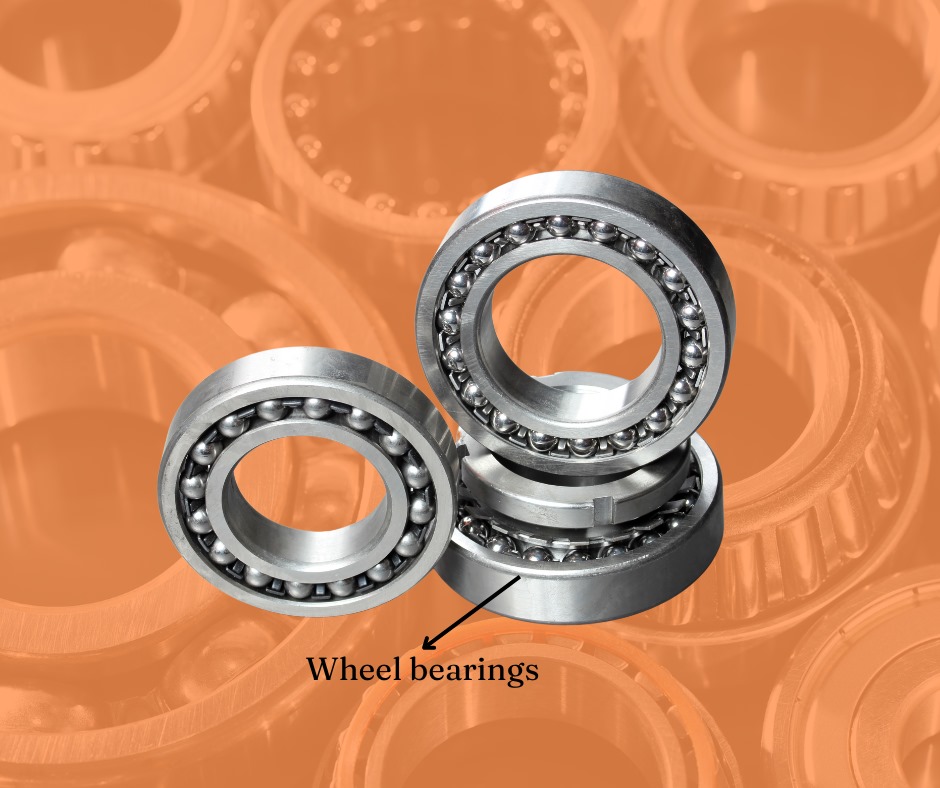How Worn-Out Wheel Bearings Affect Fuel Economy

Discover how something as small as a wheel bearing can have a significant impact on your vehicle's fuel efficiency and overall performance.
Understanding Wheel Bearings and Their Role in Your Vehicle
Wheel bearings are essential components of your vehicle's wheel assembly that allow the wheels to spin with minimal friction. They are usually found inside the wheel hub or brake drum and carry the weight of the vehicle while facilitating smooth tire rotation.
Given their crucial role, any damage or wear to the wheel bearings can compromise the overall functionality of your vehicle, affecting not just the wheels but also your driving experience and fuel efficiency.
Common Symptoms of Worn-Out Wheel Bearings
Identifying worn-out wheel bearings can be challenging but there are some common symptoms you can look out for. These include unusual noises like grinding, humming, or squealing coming from the wheels. You might also notice vibrations in the steering wheel or the vehicle pulling to one side.
Other signs include uneven tire wear, a noticeable decrease in handling performance, and increased rolling resistance. If you experience any of these symptoms, it is essential to have your wheel bearings inspected and possibly replaced.
How Worn-Out Wheel Bearings Decrease Fuel Economy
Worn-out wheel bearings create additional friction and resistance, forcing the engine to work harder to maintain speed. This increased effort translates directly into higher fuel consumption. The added strain on the engine not only decreases fuel efficiency but also accelerates wear and tear on other components, leading to more frequent maintenance and repairs.
Moreover, the increased friction can cause the tires to wear unevenly, further reducing fuel economy and necessitating premature tire replacement. Addressing worn-out wheel bearings promptly can thus save you significant costs in fuel and vehicle maintenance.
The Long-Term Costs of Ignoring Worn-Out Wheel Bearings
Ignoring worn-out wheel bearings can lead to a cascade of problems that are both costly and dangerous. Prolonged driving with faulty bearings can cause severe damage to the wheel hub, axle, and other related components. This not only results in expensive repairs but also increases the risk of accidents.
In the long run, the consistent decrease in fuel efficiency will add up, leading to higher fuel expenses. Therefore, timely maintenance of wheel bearings is crucial for both your safety and your wallet.
Tips for Maintaining Healthy Wheel Bearings and Improving Fuel Efficiency
Regular maintenance is key to ensuring the longevity of your wheel bearings. Make it a habit to inspect your wheel bearings during routine tire rotations or alignments. Look out for any signs of wear and tear, and address them immediately.
Additionally, keeping your tires properly inflated and balanced can also help reduce the stress on your wheel bearings, thereby improving fuel efficiency. Lastly, consider using high-quality lubricants and replacement parts to ensure optimal performance and longevity of your wheel bearings.

 Loading..
Loading..